Josh Izaac
Predicting Properties of Quantum Systems with Conditional Generative Models
Nov 30, 2022



Abstract:Machine learning has emerged recently as a powerful tool for predicting properties of quantum many-body systems. For many ground states of gapped Hamiltonians, generative models can learn from measurements of a single quantum state to reconstruct the state accurately enough to predict local observables. Alternatively, kernel methods can predict local observables by learning from measurements on different but related states. In this work, we combine the benefits of both approaches and propose the use of conditional generative models to simultaneously represent a family of states, by learning shared structures of different quantum states from measurements. The trained model allows us to predict arbitrary local properties of ground states, even for states not present in the training data, and without necessitating further training for new observables. We numerically validate our approach (with simulations of up to 45 qubits) for two quantum many-body problems, 2D random Heisenberg models and Rydberg atom systems.
Transfer learning in hybrid classical-quantum neural networks
Dec 17, 2019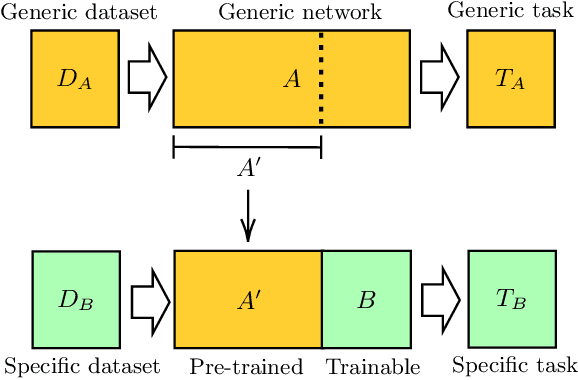
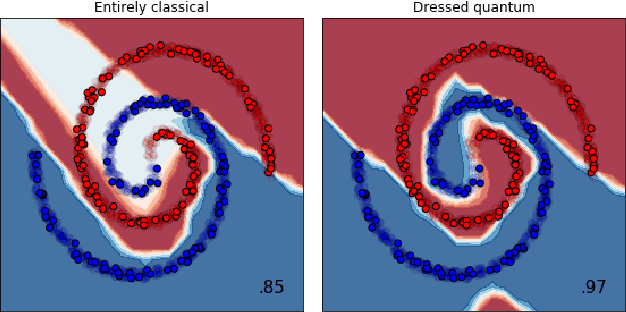
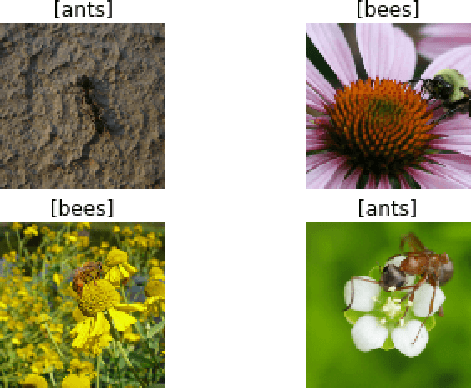
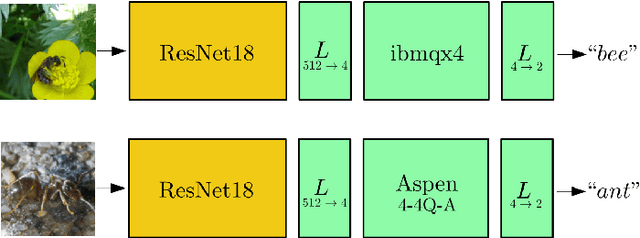
Abstract:We extend the concept of transfer learning, widely applied in modern machine learning algorithms, to the emerging context of hybrid neural networks composed of classical and quantum elements. We propose different implementations of hybrid transfer learning, but we focus mainly on the paradigm in which a pre-trained classical network is modified and augmented by a final variational quantum circuit. This approach is particularly attractive in the current era of intermediate-scale quantum technology since it allows to optimally pre-process high dimensional data (e.g., images) with any state-of-the-art classical network and to embed a select set of highly informative features into a quantum processor. We present several proof-of-concept examples of the convenient application of quantum transfer learning for image recognition and quantum state classification. We use the cross-platform software library PennyLane to experimentally test a high-resolution image classifier with two different quantum computers, respectively provided by IBM and Rigetti.
Quantum Natural Gradient
Sep 04, 2019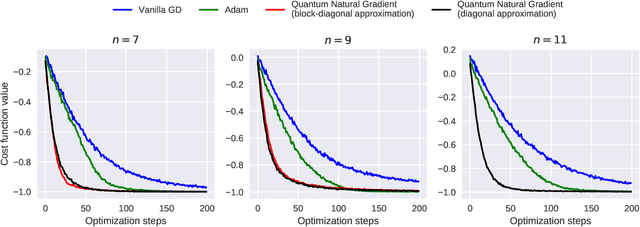
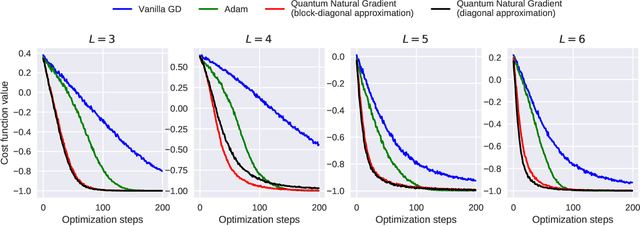
Abstract:A quantum generalization of Natural Gradient Descent is presented as part of a general-purpose optimization framework for variational quantum circuits. The optimization dynamics is interpreted as moving in the steepest descent direction with respect to the Quantum Information Geometry, corresponding to the real part of the Quantum Geometric Tensor (QGT), also known as the Fubini-Study metric tensor. An efficient algorithm is presented for computing a block-diagonal approximation to the Fubini-Study metric tensor for parametrized quantum circuits, which may be of independent interest.
PennyLane: Automatic differentiation of hybrid quantum-classical computations
Nov 12, 2018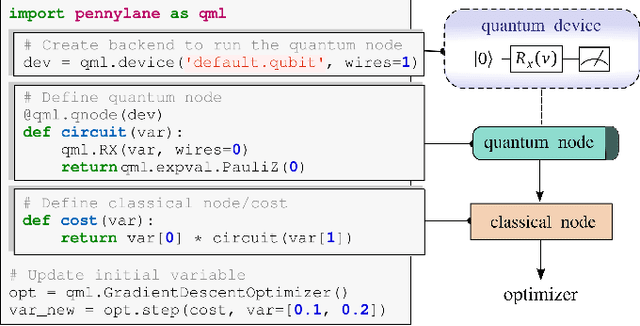


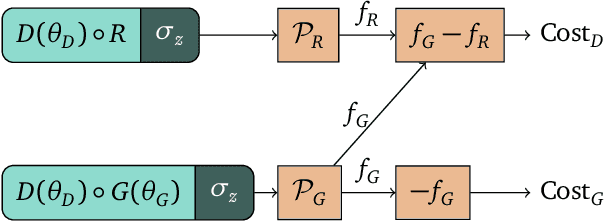
Abstract:PennyLane is a Python 3 software framework for optimization and machine learning of quantum and hybrid quantum-classical computations. The library provides a unified architecture for near-term quantum computing devices, supporting both qubit and continuous-variable paradigms. PennyLane's core feature is the ability to compute gradients of variational quantum circuits in a way that is compatible with classical techniques such as backpropagation. PennyLane thus extends the automatic differentiation algorithms common in optimization and machine learning to include quantum and hybrid computations. A plugin system makes the framework compatible with any gate-based quantum simulator or hardware. We provide plugins for StrawberryFields and ProjectQ (including a IBMQE device interface). PennyLane can be used for the optimization of variational quantum eigensolvers, quantum approximate optimization, quantum machine learning models, and many other applications.
 Add to Chrome
Add to Chrome Add to Firefox
Add to Firefox Add to Edge
Add to Edge